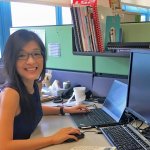By Singapore Management University
Accountants have never been more sought after in Singapore and globally, but data-driven technology is radically reshaping the skills needed to succeed in the profession and is putting traditional jobs at risk. Accounting is no longer just about collecting information; it’s about analysing the big data sets that corporations now rely on to run their operations, reduce risk, and discover new opportunities.
The business world has been transformed by improvements in computing power, which have led to companies producing structured and unstructured data on a scale that would have been unimaginable just 10 years ago. And the rise of big data has gone hand in hand with the rise in importance of the accountancy profession and the ‘disruption’ of accountancy roles.
In accountancy, technology disruption is much more than a catchphrase: it’s both a boon and a potential threat to jobs. Accountants who cling to their old number-crunching routines risk losing their careers to automation, while those who upgrade their skills—so they can interpret and organise data to influence business strategies—are in high demand.
But where can you get these new skills from? If you’re already an accountant, how can you ensure you aren’t left behind by technological change? And if you’re looking to gain accountancy skills, where should you study to get a data-focused grounding in the profession?
Fortunately for accountants and business professionals in Singapore and across Asia, Singapore Management University (SMU) has launched an innovative programme tailored to meet the demands of people who want to thrive in the new accountancy environment. The SMU Master of Science in Accounting (Data and Analytics) is the first Master degree in Asia specialising in accounting data and analytics. Unlike traditional accounting degrees, it provides a clear career pathway for people to move into jobs with accounting data and analytics applications.
There are more and more of these roles becoming available as technology fundamentally changes the way accountants work. Large companies who would previously have deployed accountants to collect and process data now use powerful accounting information systems to automate these tasks. But they still need accountants to turn the data into useful nuggets of information and help facilitate management decisions.
“Mundane, tedious, and low-level work will be automated,” says Lee Kong Chian Chair Professor Cheng Qiang, Dean of the School of Accountancy at SMU. “But the availability of massive amounts of data has created a high demand for skilled data analytics professionals who can analyse such data and obtain the insight needed for informed decision making.”
Accountants, therefore, need to better develop the skills—including critical-thinking, judgment and communication skills—that will equip them to prosper in a more data-driven world. The SMU Master of Science in Accounting (MSA) is designed to help them do just that. In the programme, you learn how to analyse large amounts of data and find new insights that will give your company and your career a valuable competitive advantage. “We want our students to be future ready. Memorising accounting standards and being able to record journal entries for transactions will not be sufficient,” says Professor Cheng.
Started in August 2018, the MSA programme is taught over two years part-time, or over one year full-time, and comprises 12 courses under three key themes: accounting foundation, data technology, and accounting analytics. Its diverse and cutting-edge modules include forecasting and forensic analytics, programming with data, analytics for value investing, and data modelling and visualisation.
If you enrol in the MSA, you get to use the latest analytics technology and gain real-world experience from discussing case studies of actual companies in Asia and globally. A capstone project at the end of the course involves partners from various organisations, where you will be able to be mentored by both faculty and industry professionals to solve real problems companies are facing. Gaining a knowledge of how and where to apply technological expertise will enable you to perform the higher-level analytics tasks that are increasingly expected of accountants.
You will study in the centre of Singapore, the accounting hub of Southeast Asia, at a world-class business school that boasts high standards of accounting research and education. SMU’s School of Accountancy is ranked first in Asia and third in the world for both archival research (all topics) and archival research (financial), according to the Brigham Young University Accounting Research Rankings.
Many of SMU’s faculty members have accounting industry experience and bring this practical understanding to the classroom. Their interactive, seminar-style teaching encourages debate and allows you to voice your opinions. “We help students develop important skills in small classroom discussions, group projects and presentations,” says Professor Cheng. “We challenge our students with important questions, and provide them with opportunities to have a dialogue with professionals on the current and future status of accounting professions.”
SMU also has a diverse student and alumni population, from many different countries and industries, who bring their equally diverse personal and professional experiences into your network. And you can take advantage of comprehensive guidance from the school’s dedicated career services team to help you uncover data and analytics job opportunities.
Employers in Singapore and across Asia are finding it hard to recruit qualified accountants who also have data and analytics skills—there aren’t enough of them to meet the growing demand. The profession-centric SMU MSA will put you in a strong position in the job market as companies look to pay a premium to hire people with the ability to shape their day-to-day decisions and long-term business objectives.
This article was originally published on eFinancialCareers.








